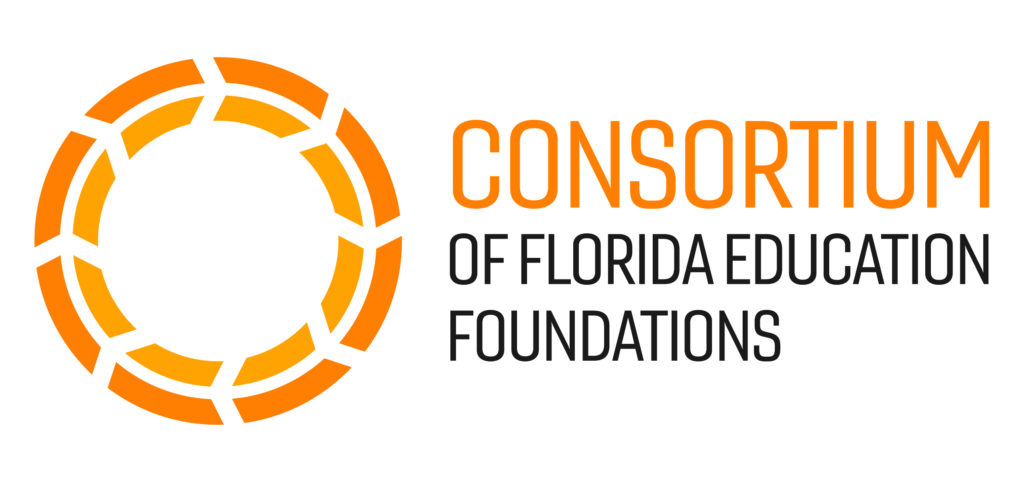- Leslie Daugherty, Senior Education Designer, Education Design Lab
- Marcie Moore, Dean of Business, Engineering and Information Technologies, Zane State College
- Tracy Burger, Director of Member Development, Consortium of Florida Education Foundations
FCAN host: Kathy McDonald, Assistant Director for Network Partnerships
Consortium host: Mary Chance, President/CEO
Overall, rural learners experience greater disparities at each stage of the education-to-workforce pipeline relative to their urban and suburban peers.
On April 27, FCAN and the Consortium of Florida Education Foundations co-hosted a webinar highlighting recent innovative efforts to bolster education attainment and workforce development in rural communities throughout the U.S., including several in Florida.
The webinar featured an overview of Education Design Lab’s nationwide BRIDGES Rural Initiative, as well as information about the Consortium’s “Building College and Career Readiness Cultures in Rural Communities” initiative, which is supported by the Bill & Melinda Gates Foundation.
Mary Chance, President and CEO of the Consortium, said that helping fill potential gaps to student success in the communities they serve is an integral part of the work education foundations do.
“These are nonprofits who are stepping in where perhaps public funding falls short, or where they want to drive some innovation and provide individual support to students and teachers, including in college and career pathway work,” Chance said.
Get to Know: Education Design Lab’s BRIDGES Rural Initiative
Education Design Lab is a national nonprofit that co-designs, prototypes and tests education-to-workforce models through a human-centered design process focused on learners’ experiences, addressing equity gaps in higher education, and connecting learners to economic mobility.
Through its BRIDGES Rural Initiative — which launched in April 2020 — the Lab led a cohort of five rural community colleges in the BRIDGES Rural Design Challenge, a multi-year initiative to create new pathways to postsecondary attainment and economic opportunity in rural communities.
Leslie Daugherty, Senior Education Designer, shared information about the Lab’s process, as well as the design question that guided the rural initiative: How might we strengthen the capacity of rural community colleges to serve as critical economic growth engines for their learners and communities?
“We know that many of the wonderful people working at these (rural) colleges are deans of five different departments and working multiple jobs,” Daugherty said. “So the question is, ‘How do we think about their capacity?’ as they become that critical economic growth engine.”
Daugherty also shared a few insights and lessons learned from a recently-released brief almost two years after the project’s launch. The insights include:
- Future efforts should include a greater understanding of the diversity of learners within each rural community
- Flexible learning options are essential to rural learners
- More work-based learning opportunities are critical to increasing rural learner success
- Rural community colleges can be trusted hubs to drive economic mobility
Zane State College helps students “Earn and Learn”
One of the five community colleges in the BRIDGES Rural Initiative cohort is Zane State College in Southeast Ohio. Roughly half of the college’s 2,000 students are Pell Grant-eligible.
Marcie Moore — Dean of Business, Engineering, and Information Technologies for Zane State — shared details about how her institution worked through the various stages of the Lab’s design process: Understand, Ideate, Prototype, and Launch.
Moore said some of the changes Zane State has made were “quick and easy” fixes, including improving green spaces, expanding student clubs, and serving as a community leader in terms of diversity, equity and inclusion.
Following a convening of the five BRIDGES community colleges, Zane State also piloted an “Earn to Learn” model where students earn money at an industry-related job while taking classes and are hired directly upon completion.
“The employer agrees not to call a student into work on a school day, and the student agrees to go to class and show up at work,” said Moore, who added that the first cohort involved accounting students at Zane State, each of whom successfully completed the program and got jobs as a result. “We also got very helpful feedback in terms of things that work for the students’ schedule.”
Building College and Career Cultures in Rural Florida
Tracy Burger, Director of Member Development for the Consortium of Florida Education Foundations, shared some of the ways Florida’s education foundations are working to boost workforce development in the rural parts of the state through the Building College & Career Cultures initiatives.
“We’ve learned through this initiative that rural communities don’t really have a college-going culture, maybe because a lot of students are first-generation, so college isn’t talked about a lot,” Burger said. “The funding is not there, and there’s no local champion that can take on this work.”
Launched in late 2020, the initiative brought members with expertise in college and career readiness programming (representing Pinellas, Sarasota, and Collier counties) together with rural local education foundation leaders (in Hardee, Levy, Okeechobee, and Glades counties) for peer-to-peer learning and support focused on improving the college-going rate in rural communities. The Consortium also teamed with FCAN, which provides technical assistance, research, and program support for the initiative.
Among the lessons learned:
- Sharing successes and challenges MATTERS
- Learning from peers and others in the trenches is crucial
- Importance of FAFSA and how to support students
- Difficult to move the FAFSA needle
- Community relationships MATTER
Burger and Chance will present more of their findings during their session, “Building College & Career Cultures in Rural Florida,” at the 2022 Talent Strong Florida Summit on May 10-11. Visit fcansummit.org to learn more and register.
FCAN would like to thank the following for co-hosting this webinar:
Show Notes
To learn more about establishing and expanding college and career cultures in rural communities — or to view the recording and download the presentation — take advantage of these resources:
Recording
Slides
Bridges Rural Design Insights — Part 1 (Education Design Lab)
Bridges Rural Design Insights — Part 2 (Education Design Lab)
Be sure to visit our Past Webinars page for access to recordings and downloadable material from FCAN’s previous presentations.


